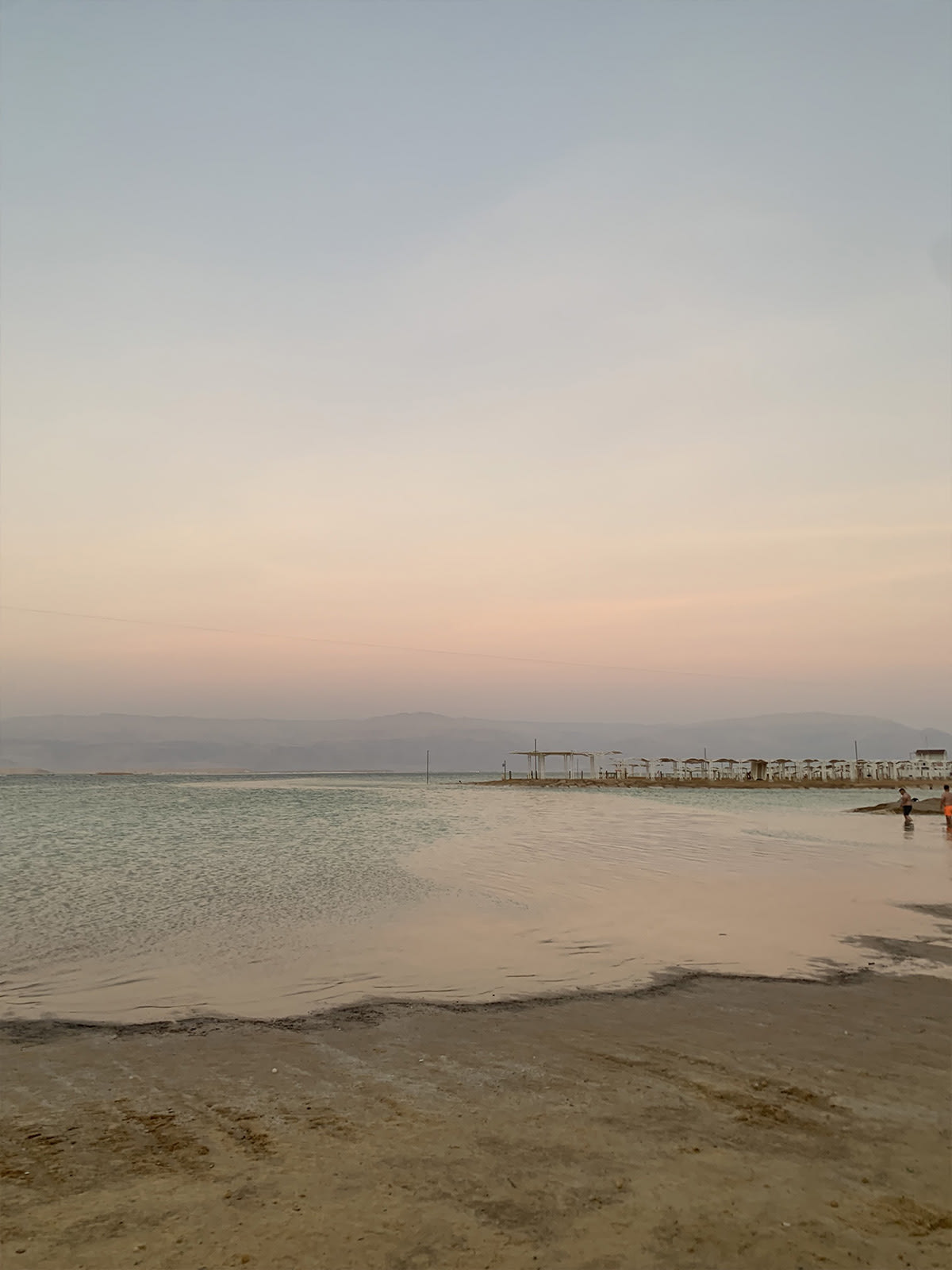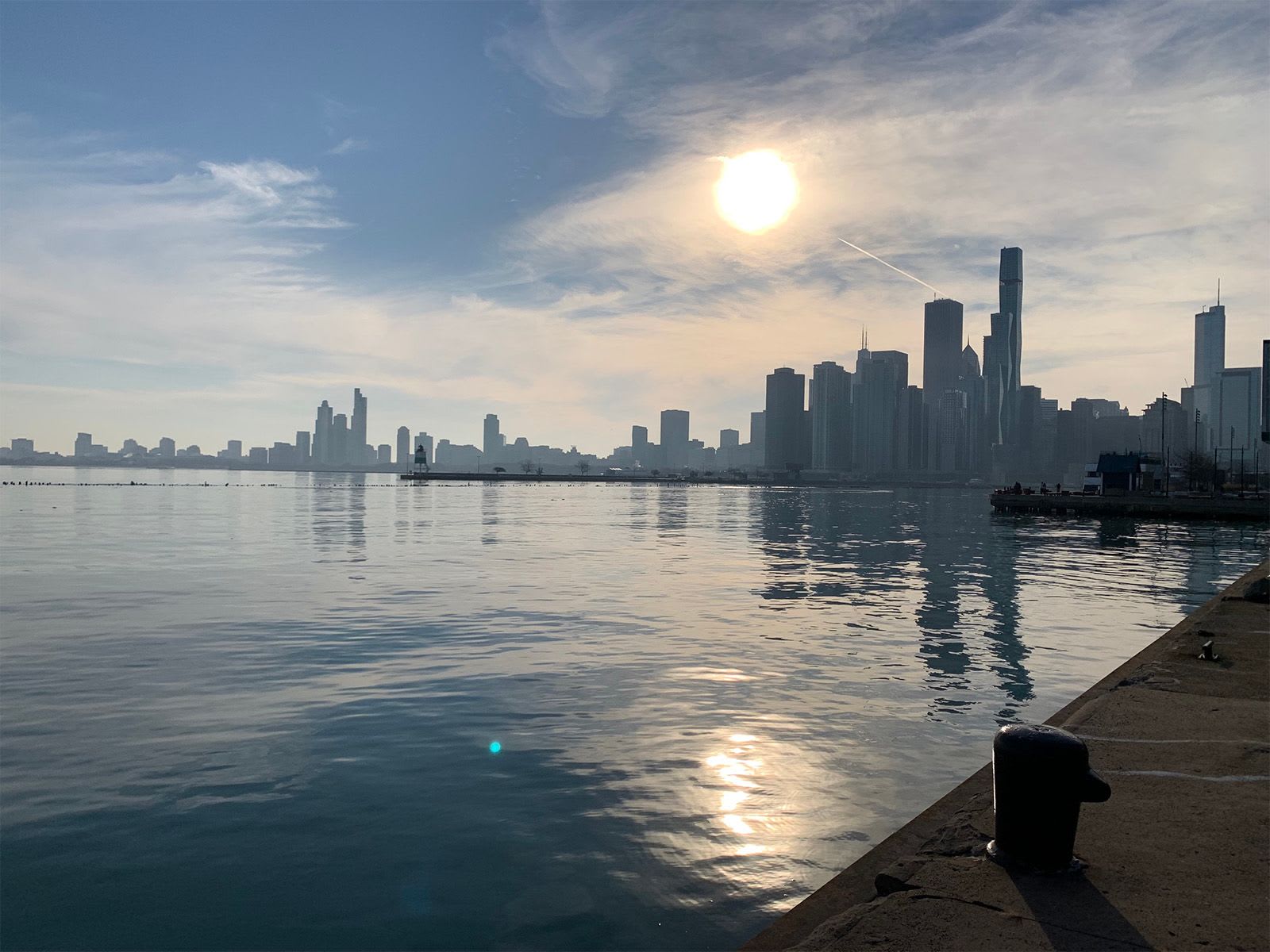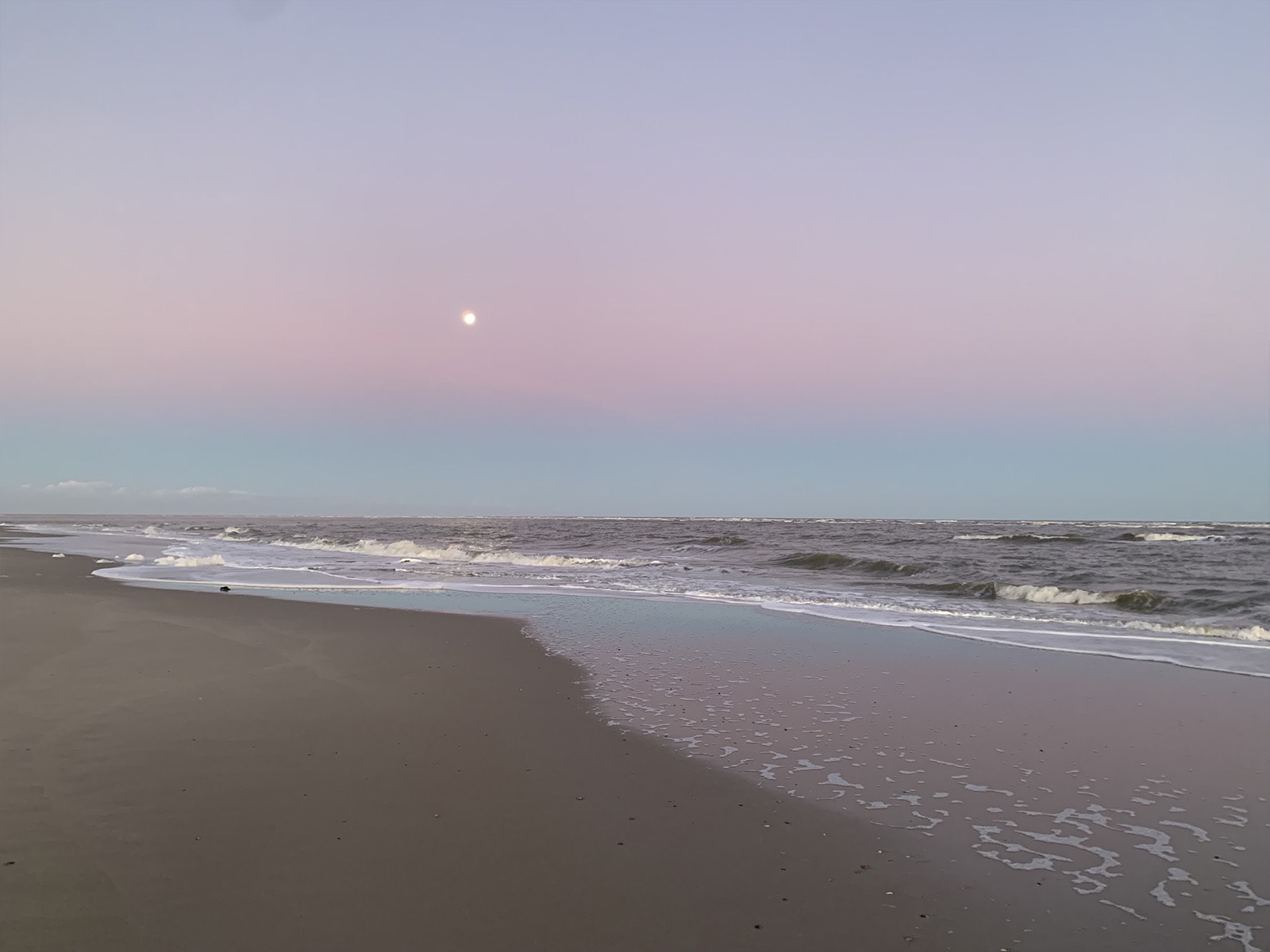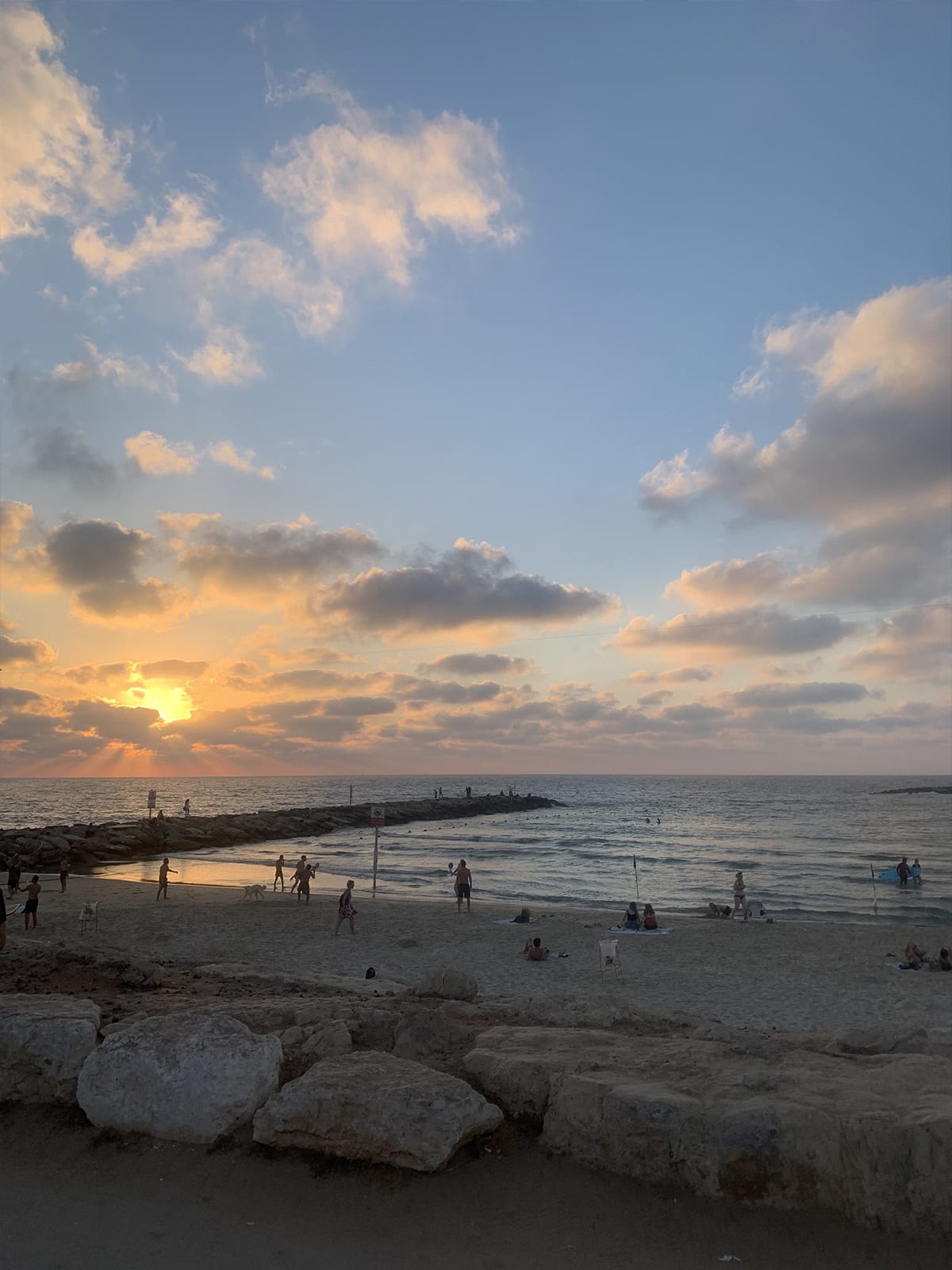 The Dead Sea, 2022.
The Dead Sea, 2022.
Five Questions for Dana Vowinckel about The World in a Ziplock Bag
News
The World in a Ziplock Bag is your first novel. How long did it take you to write it, and how did the idea for the story come about?
It took me pretty much exactly two years to produce a finished manuscript – but before I took part in the Bachmann Prize competition, I only had about 20 pages; I wrote the vast majority between the summer of 2021 and the winter of 2022. The idea came about because I’ve always been fascinated by cantors – they’re kind of ambiguous figures, because the job is half religious but also half musical, creating a fascinating interplay of the profane and the sacred. So Avi came first. Quickly followed by Margarita, and in her acerbic, neurotic way, she hasn’t let go of me since – a fiery, completely areligious counterpart to her serious, softly spoken father.

Chicago, 2022.
The novel revolves around the 15-year-old Margarita, her father Avi, and Margarita’s mother, Marsha. A happy family?
I don’t know if they’re happy. I’d go along with Tolstoy in a completely clichéd way and say that in their particular and unique way, they’re an unhappy family, because they are not like any other family. But maybe they’re a happy unhappy family. The way they exist as a family means there is plenty of pain, but there is also great joy about the fact that they exist. Avi and Marsha love their daughter in very different ways. They’re both lonely, they both wish that certain things had turned out differently. But they like their lives. And Margarita is 15. I’d find it worrying if she thought her family was happy. And I think that when you take a closer look, you can find a great deal of joy in the fact that Avi, Margarita, and Marsha are a family that tries to define itself as a family beyond the strictures of social norms.
 Berlin, 2023.
Berlin, 2023.
Your novel is set in Berlin and in Jerusalem, in Chicago, on the island of Spiekeroog, and in Tel Aviv – is there something that connects all of these places for you?
They are all places where I have cried in public. And all of these places have a significant literary potential for me – they are political places, contested places. Jerusalem probably a bit more so than Spiekeroog, but to me, Spiekeroog also stands for a Germany beyond Berlin, where people act as if nothing ever happened. Berlin and Chicago are the cities of my childhood, the day to day of my childhood in Berlin, the summers in Chicago. And, you know, Israel is Israel, complicated, awful, and important to me

Spiekeroog, 2021.
You grew up in Berlin and Chicago and also spent stints in Cambridge and Toulouse while you were at university. Where do you feel at home?
I feel most at home when I can actually physically be in my apartment, which is in Berlin. But I think it could also be somewhere else. Home is so many things: the smell of an American laundromat or of the wet grass in the South Side of Chicago, bagels with lox and cream cheese, a large beer and a stealthy cigarette with my best friends in a bar in Kreuzberg, it’s my bed, sitting on it with my laptop and my first reader beside me, home is Lekha Dodi on a Friday afternoon, with light trickling in through the window of the synagogue, but home is also the rug in the lounge room of my grandparents’ place in Bielefeld, where I would lie on my stomach reading a book and eat ham on rye for dinner. Home is also literature, reading, and, of course, writing. Maybe home is the blinking cursor in a Word document.
 Chicago, 2016.
Chicago, 2016.
 En Gedi, 2022.
En Gedi, 2022.
 Tel Aviv, 2022.
Tel Aviv, 2022.
Who should absolutely read your novel?
I don’t have an idea of a specific target audience, but maybe: Anyone who’s ever had a broken heart. Anyone who thinks teenagers are especially smart or especially stupid. Anyone with a body they sometimes don’t like. Anyone who sometimes has thoughts they don’t like. Everyone who has felt sorry for themselves, but also everyone who knows how to feel empathy. People who don’t want or need a homeland but who are nevertheless constantly homesick. People with Jewish grandmothers. And I would definitely recommend my novel for people with misophonia.All photos: © Dana Vowinckel